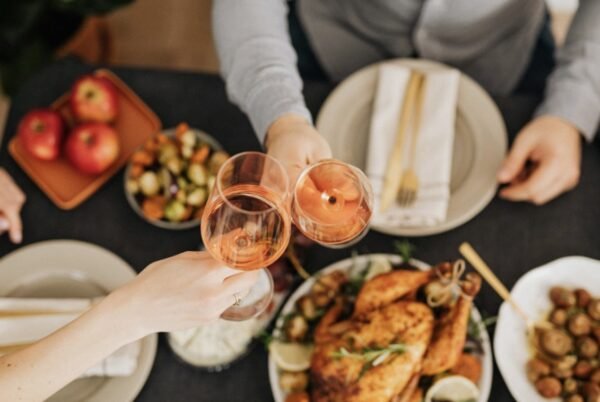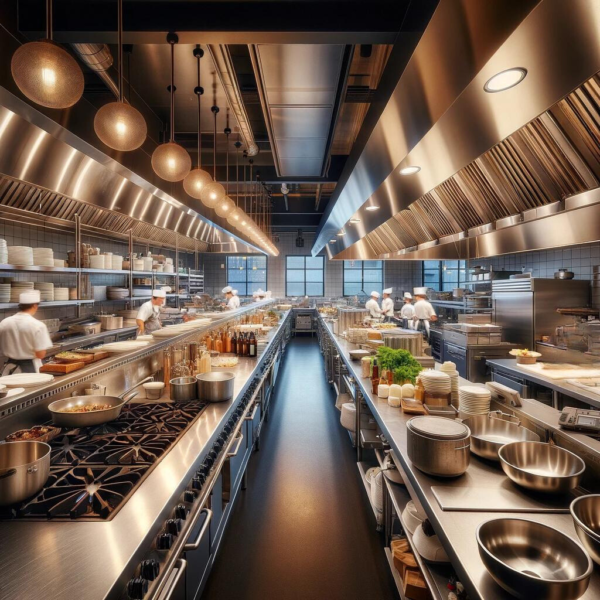
Festive Dinner Tips to Maximise Electricity Savings

The cost of living crisis continues to impact many households in the UK, leading to increased scrutiny on energy consumption, especially in the kitchen. During the holiday season, when large and elaborate meals are the norm, it’s important to find creative ways to cook without using excessive energy. The kitchen is often a hub of activity, particularly during the festive season, and it can also be a significant contributor to household energy consumption.
To mitigate this, many are turning to smart appliances and techniques that not only save energy but also enhance the cooking experience. For those looking to optimize their electrical systems, consulting a Minneapolis electrician can provide valuable insights into making home upgrades that support energy efficiency. Whether it’s installing energy-saving lighting, optimizing kitchen layouts for better airflow, or updating older appliances, investing in electrical improvements can yield significant savings in the long run.
By embracing these strategies, households can enjoy their holiday feasts while being mindful of their energy usage, ultimately striking a balance between festive celebrations and sustainable living.
To help consumers, we contacted Michelle Stanley, finance expert and founder of The William Stanley Group, who shares tips and tricks to help save on energy costs while still enjoying festive and delicious meals.
Explore Energy-Efficient Cooking Appliances
Pressure Cooker
A pressure cooker can cook food much faster than other methods, using less energy. It’s great for cooking meats, stews, and soups.
Slow Cooker
Although it cooks over a long period, a slow cooker uses very little energy. It’s perfect for casseroles, soups, and stews.
Microwave
The microwave is much more energy-efficient for smaller portions or reheating than the oven.
Steamer
A steamer requires less energy and water than boiling, and it’s a great way to cook vegetables while retaining their nutrients.
Implement Efficient Cooking Techniques
Batch Cooking And Cut Smaller Pieces
Cook larger quantities at once and freeze portions for later. This way, you’re using the oven or stove less frequently. And don’t forget to cut into smaller pieces as they cook faster, saving energy.
One-Pot Meals And Use Lids
Recipes that require only one pot or pan can significantly reduce cooking time and energy use. Always use lids on pots and pans to retain heat and cook food faster.
Avoid Pre-Rinsing Dishes
If you’re using a dishwasher, there’s no need to pre-rinse dishes. Modern dishwashers are capable of handling dirty dishes.
Energy-Efficient Recipe Ideas
Vegetarian Options
Vegetarian recipes often require less cooking time, making them more energy-efficient. Consider a hearty vegetable stew or a bean-based chili.
Cold Dishes
Salads and cold platters require minimal to no cooking at all. Get creative with fresh vegetables, grains, and proteins like canned beans or boiled eggs.
Grill or BBQ
If weather permits, grilling outside can be a fun way to prepare food without using indoor appliances.
Desserts without Baking
Opt for desserts that don’t require baking, like trifle, fruit salad, or no-bake cheesecake.
Maximise Savings With These Tips
Cook During Off-Peak Hours
If energy costs vary by time of day, plan to cook during off-peak hours.
Use Energy-Efficient Lighting
Make sure the kitchen is equipped with LED or other energy-efficient lighting.
Use a Thermos for Hot Drinks
Instead of boiling water multiple times, boil it once and keep the water hot in a thermos.
Having a great festivity doesn’t have to break the bank during the holidays. Instead, get creative and save money while still treating yourself to nice family meals.














































